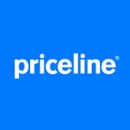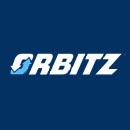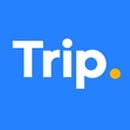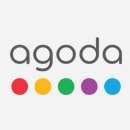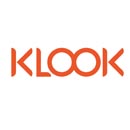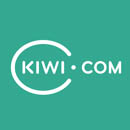[Last updated: Tue 26 Jan 2021]
This is without a doubt one of the most commonly asked questions by our users. Let’s begin by looking at exactly what each of the options are, and their main advantages and disadvantages.
Online Travel Agencies: What you need to know
An online travel agency, or OTA for short, allows for both searching and booking of travel products like hotels and flights. Typically they work directly with airlines and hotels, and then receive a commission for every ticket or room which is booked through them. This is where the basic price difference between OTAs come in, some OTAs, usually bigger, can negotiate a better price with the hotel/airline, or alternatively accept a lower profit margin on each booking. OTAs you've probably heard of include Expedia, Booking.com, Trip.com, Hotels.com and Agoda but there are hundreds out there.
While it may seem that there is a 3 way relationship between yourself, the booking site and the supplier (hotel/airline) this isn’t strictly true, there is actually often a 4th party involved. This party is say a supplier of hotel rooms, they sign the contracts with the hotels and then the OTA lists their rooms. From a customer point of view though most sites don’t reveal this kind of information and generally speaking it isn’t that relevant.
The good thing about booking through on OTA is that they provide some love of customer service, and generally speaking changes and cancellations should be made through them. Be ware that some OTAs will strictly follow the supplier’s (hotel/airline) own policies when it comes to changes and cancellations, however some will have different booking conditions, so make sure you pay attention to everything before you book.
The other most obvious advantage to OTAs is that you can compare millions of hotel rooms and hundreds of airlines all in the same place. This is indeed a serious time saving measure, and will also help you land the best price for flights, and the most appropriate room for hotels.
Aggregators, AKA Meta Search Sites
An aggregator site, also known as a comparison site or a meta-site, allows you to make a single search and compare multiple OTAs in one place. In theory this sounds like the perfect time saver, and it indeed can be, but there are some big caveats. The biggest players in this field include Skyscanner, Kayak, Trivago and HotelsCombined.
Most aggregators will redirect you to the OTAs individual site to book, so in the end you’re actually booking in the same place. In the last few years, some have added the ability to make direct bookings through their own individual platforms.
If you’re paying attention you’ve probably noticed that since you’re still booking in the same place, your booking will be taken care of by the site OTA itself. This means for changes, cancellations and any other after-sales service, you’ll need to contact the OTA. Traditionally, most meta sites don’t offer any kind of customer service, and when they do they’ll normally just tell you to call the OTA.
The question most people wants to know is are the aggregators actually any cheaper. Sometimes, there is quite a big price saving as the OTAs are competing against each other on the platform. However at the same time you need to remember that OTAs need to pay a fee for every booking that's made through the aggregator which cuts into their profit margins. For this reason a lot of OTAs will choose to hold off some of their best deals, as by the time you factor in the fee to the aggregator they might be loosing money. If you're just looking to get the best price you can find in 30 seconds, the aggregator sites are a fantastic choice, however you should always consider visiting the OTA site independently to ensure you're getting the best price.
Ok, I know the difference. Which one should I use?
Unfortunately it’s not that simple. Let’s start with the most basic consideration for most people, price.
Since OTAs are all in direct competition with each other on aggregator sites, you might expect them to be presenting their best price, and often you’ll be correct. In fact, OTAs often give cheaper prices through these meta sites than you can get on their own site. But this is not always the case. If you think about it from a business perspective, there’s now four parties involved in the transaction (or possible five if the OTA is getting it’s rooms through another supplier). Everybody takes a cut, and aggregators are known for taking a particularly big slice of the pie. Given that this means that OTAs need to pay extra commission or fees, it sometimes mean that they need to actually increase their prices on meta sites in order to cover their costs.
Another thing to pay attention to is the way the search results are presented. Some meta sites will simply present the results in order from cheapest to most expensive, while others are much less transparent, instead putting the OTA which bids the most at the top of the results.
One other thing to consider is that many OTAs offer some kind of rewards or loyalty program, for example for Hotels.com you get one free night for every 10 booked, which can be significant. Other OTAs like Trip.com and Expedia offer points on each booking which can be used for future bookings. If you book through a direct booking feature, it’s possible you won’t get these rewards.
Conclusion
Unfortunately it’s not overwhelmingly simple. The meta search sites are definitely worth checking, as the strong element of competition often pushes the prices down significantly. Just don’t believe that you are ALWAYS getting the best price. If you really want the best prices you’re going to need to check BOTH the meta sites as well as the individual OTAs themselves.
Other Related Reading
Other Articles

Best Hotels in Shanghai

Top Bangkok Hotels

Where to Stay in Sydney

Top Hotels in Bali

Online Travel Agencies vs Comparison Sites (Aggregators)

Best Online Travel Site Loyalty Program: Booking.com vs Trip.com vs Expedia vs Hotels.com

Cheapest Travel Sites to Book Hotels

How To Cancel Flights on Trip.com and Get a Refund

Is Trip.com Legit? We've Checked It Out

Which Sites Accept AfterPay For Hotels?


